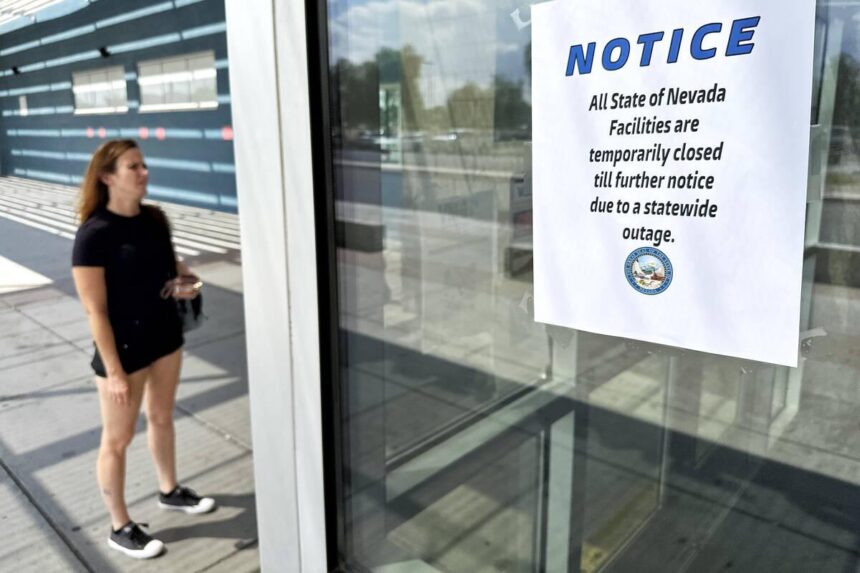Cyberattack on Nevada DMV Causes Major Delays in Residency Verification for In-State Tuition
How the Cybersecurity Breach Has Impacted Nevada DMV Services
A recent cyberattack targeting the Nevada Department of Motor Vehicles (DMV) has severely disrupted the agency’s ability to process residency verification appointments. This interruption has led to widespread delays, leaving thousands of students in limbo as they attempt to secure the documentation necessary to prove Nevada residency for in-state tuition eligibility.The backlog has created confusion and anxiety among applicants, many of whom are concerned about meeting critical deadlines for university enrollment.
The cyber incident has not only slowed appointment scheduling but also frozen many online verification tools, forcing DMV staff to manage an increased workload with outdated systems. Consequently, the typical DMV processes have been extended substantially, as outlined below:
| Process Stage | Typical Duration | Current Delay |
|---|---|---|
| Scheduling Appointments | 3-5 days | 3-4 weeks |
| Document Verification | 1-2 days | 1-2 weeks |
| Final Approval | Same day | Up to 1 week |
Consequences for Students Seeking In-State Tuition
The delays at the DMV have far-reaching implications for students and their families across Nevada. Since obtaining valid identification and residency confirmation is a prerequisite for qualifying for in-state tuition rates at public universities, the backlog threatens to derail many students’ educational plans. The inability to secure timely documentation could force some to pay out-of-state tuition, which often doubles the cost of attendance.
Education advocates and families have raised several concerns stemming from these delays:
- Missed University Deadlines: Students risk missing critical cutoffs for tuition classification changes.
- Financial Hardship: Increased tuition costs may place a significant burden on families.
- Administrative Overload: Universities are experiencing a surge in residency appeals, slowing admissions processing.
| Area Affected | Potential Impact |
|---|---|
| Residency Documentation | Delayed issuance of IDs impedes residency verification |
| Student Enrollment | Increased risk of being classified as out-of-state |
| Financial Aid | Complications in qualifying for state-specific scholarships |
State Response: Measures to Expedite Verification and Support Students
Recognizing the urgency of the situation, Nevada officials have outlined a multi-pronged strategy to address the mounting backlog and restore efficient DMV operations.Their plan focuses on prioritizing students affected by the delays and expanding remote verification capabilities to reduce the need for in-person visits.
Key initiatives include:
- Allocating Priority Appointment Slots: Ensuring students seeking residency verification receive expedited scheduling.
- Implementing Virtual Identity Verification: Launching online tools to confirm residency without physical appointments.
- Establishing Dedicated Support Teams: Providing personalized assistance to applicants navigating the verification process.
| Step | Action | Expected Result |
|---|---|---|
| 1 | Appointment Prioritization | Reduced wait times for students |
| 2 | Virtual Verification Rollout | Accelerated identity confirmation |
| 3 | Support Task Force Deployment | Enhanced applicant guidance and support |
Alternative Residency Proofs: Recommendations to Bypass DMV Delays
In light of the ongoing challenges at the DMV, education experts and state authorities are encouraging students to utilize alternative documentation to establish Nevada residency for tuition purposes. Conventional reliance on DMV-issued IDs has become impractical, prompting universities to accept other valid proofs to prevent students from being unfairly disadvantaged.
Acceptable alternative documents include:
- Current lease or rental agreements listing the student’s name and Nevada address
- Recent utility bills (electricity, water, gas) dated within the last three months
- Official correspondence from Nevada state agencies addressed to the student
- Employment verification from Nevada-based employers, such as pay stubs or official letters
| Document Type | Requirements | Processing Time |
|---|---|---|
| Lease Agreement | Signed and current | Immediate |
| Utility Bill | Student’s name and Nevada address | Same day |
| State Agency Letter | Official letterhead, recent date | 1-3 days |
| Employment Verification | Employer contact info, recent pay dates | 1-2 days |
Summary: Navigating the Fallout from the Nevada DMV Cyberattack
The recent cyberattack on Nevada’s DMV has exposed vulnerabilities in state agency operations and underscored the critical importance of robust cybersecurity measures.For students and families depending on timely residency verification to access affordable in-state tuition, the resulting delays have introduced significant uncertainty and financial risk.
State officials are actively working to accelerate appointment scheduling, expand virtual verification options, and provide enhanced support to affected applicants.Simultaneously occurring, students are advised to stay updated through official channels and explore alternative documentation methods to avoid disruptions in their educational pursuits. As Nevada adapts to these challenges, the incident serves as a reminder of the growing need for resilient digital infrastructure in public services.










